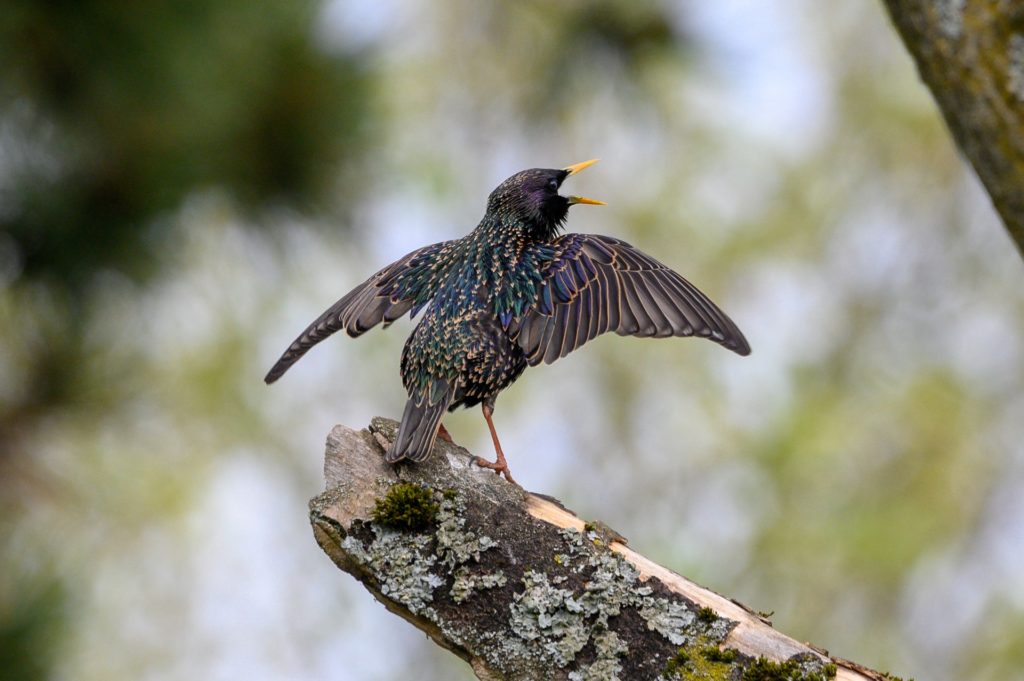Birdsong is not only the pleasant sonic wallpaper of an evening in the garden, it also has a biological function for the birds, according to research from the university of Antwerp.
According to neurobiologist Annemie Van Der Linden and her team, the more a bird sings, the more its brain develops.
Birds sing more in the spring than in the rest of the year, for reasons that are known: they need to attract a mate, and later to defend their nest territory. But they go on to continue singing later in the year.
According to the team’s research, birdsong plays a further role: it helps in the development of their brains. Not only in those zones directly linked to singing, but also in other areas, for example those linked to sight and hearing.
Birds, of course, do not sing in the sense that humans do. Each species has a set of distinctive calls designed to communicate with others of the same: attraction, danger, presence of food, territorial encroachment. Bird-watchers can differentiate the different calls of different birds, and the birds themselves are even more fluent.
Another result of the research was that female birds sing more than previously imagined by biologists. And in doing so, their brains develop in a quite different way from those of the males of the species.
In male starlings, for example, singing helps to develop the networks in the side of the brain concerned. But in females, it also helps build stronger connections between the two hemispheres of the brain.
That result, incidentally, has already been found in humans.

